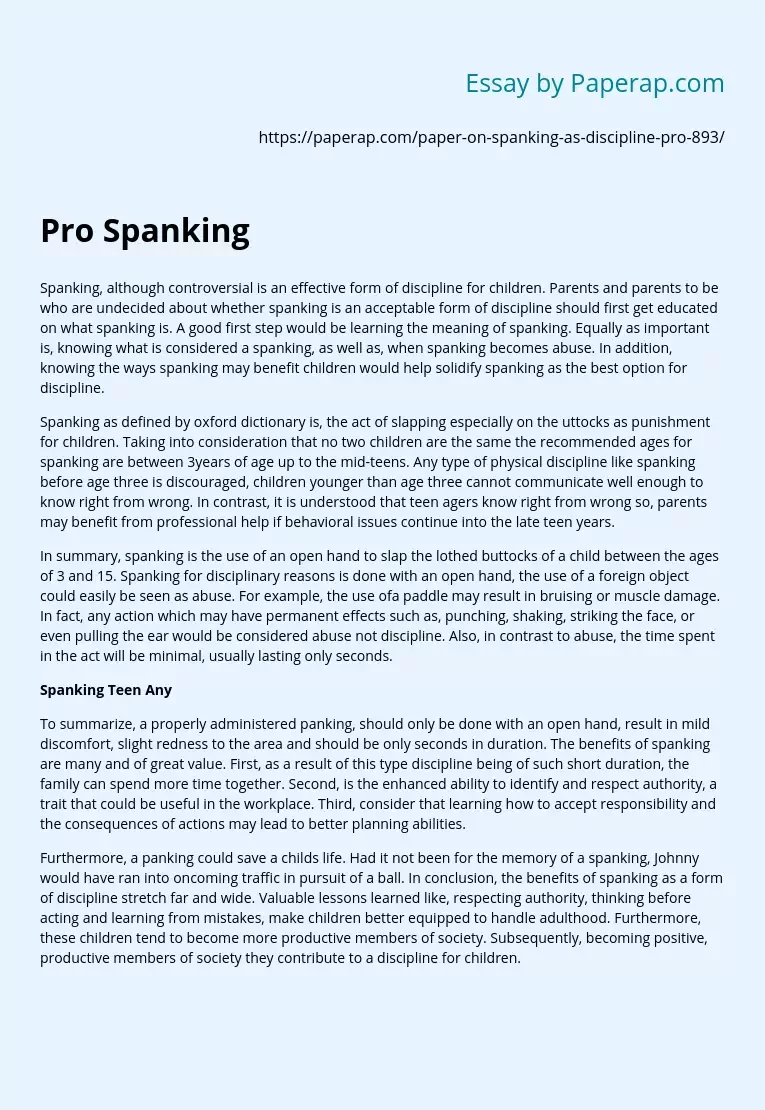Spanking as Discipline for Children
Spanking, although controversial is an effective form of discipline for children. Parents and parents to be who are undecided about whether spanking is an acceptable form of discipline should first get educated on what spanking is. A good first step would be learning the meaning of spanking. Equally as important is, knowing what is considered a spanking, as well as, when spanking becomes abuse. In addition, knowing the ways spanking may benefit children would help solidify spanking as the best option for discipline.
Spanking as defined by oxford dictionary is, the act of slapping especially on the uttocks as punishment for children. Taking into consideration that no two children are the same the recommended ages for spanking are between 3years of age up to the mid-teens. Any type of physical discipline like spanking before age three is discouraged, children younger than age three cannot communicate well enough to know right from wrong. In contrast, it is understood that teen agers know right from wrong so, parents may benefit from professional help if behavioral issues continue into the late teen years.
In summary, spanking is the use of an open hand to slap the lothed buttocks of a child between the ages of 3 and 15. Spanking for disciplinary reasons is done with an open hand, the use of a foreign object could easily be seen as abuse. For example, the use ofa paddle may result in bruising or muscle damage. In fact, any action which may have permanent effects such as, punching, shaking, striking the face, or even pulling the ear would be considered abuse not discipline.
Also, in contrast to abuse, the time spent in the act will be minimal, usually lasting only seconds.
Spanking Teen Any
To summarize, a properly administered panking, should only be done with an open hand, result in mild discomfort, slight redness to the area and should be only seconds in duration. The benefits of spanking are many and of great value. First, as a result of this type discipline being of such short duration, the family can spend more time together. Second, is the enhanced ability to identify and respect authority, a trait that could be useful in the workplace. Third, consider that learning how to accept responsibility and the consequences of actions may lead to better planning abilities.
Furthermore, a panking could save a childs life. Had it not been for the memory of a spanking, Johnny would have ran into oncoming traffic in pursuit of a ball. In conclusion, the benefits of spanking as a form of discipline stretch far and wide. Valuable lessons learned like, respecting authority, thinking before acting and learning from mistakes, make children better equipped to handle adulthood. Furthermore, these children tend to become more productive members of society. Subsequently, becoming positive, productive members of society they contribute to a discipline for children.
Spanking as Discipline for Children. (2019, Dec 05). Retrieved from https://paperap.com/paper-on-spanking-as-discipline-pro-893/

